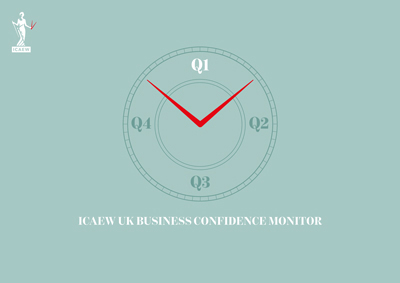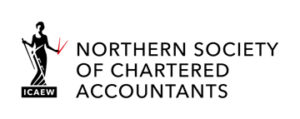EGM called by Northern Society of Chartered Accountants
19 September 2023
Notice is given that the...
The latest ICAEW UK Business Confidence Monitor (BCM): Northern England report sets out that at Q1 2022: Robust sales growth expected as business confidence remains high.
 Robust sales growth expected as business confidence remains high
Robust sales growth expected as business confidence remains high
The Business Confidence Index for Northern England remains well above pre-pandemic norms, at +31.5 in Q1 2022. This is one of only two regions, along with the West Midlands, in which the index has seen a slight increase from the previous quarter. And companies in the region are more confident than nationally.
Sales during 2020 and the early parts of 2021 declined sharply as the pandemic caused a collapse in economic activity. Since then, demand conditions have improved, particularly in domestic markets. In the year to Q1 2022 domestic sales increased by 2.9%, which marks a return to pre-pandemic rates of growth. Export performance was more modest, with sales only 0.5% higher than the previous year. However, business sentiment is clearly being buoyed by the sales outlook for the year ahead, as companies continue to recover from the crisis. Both domestic sales (7.5%) and exports (5.9%) are expected to grow at faster rates than in any other UK nation or region. If achieved, these would be the strongest outturns seen in the region since the survey began in 2004.
Against that backdrop, the proportion of businesses operating below capacity has fallen to just 36% in Q1 2022. This is the lowest rate seen in Northern England since the beginning of the survey in 2004.
Reflecting expectations of strong sales growth, businesses plan to start hiring at a faster pace. Following a rise in employment of 1.1%, year-on-year, in Q1 2022, staff levels are expected to increase by 3.2% over the next 12 months. This may also help to explain why businesses expect average total salaries to rise by a further 2.5% over the next year, after being lifted by a similar rate (2.6%) in the year to Q1 2022.
Rising average total salaries are also linked to challenges businesses are facing in the labour market. Labour-supply bottlenecks, as companies all try to recruit workers at the same time, are part of the story here. This issue has been exacerbated both by post-Brexit limits on the hiring of workers from the EU, and by people exiting the labour market during the pandemic.
Difficulties with the availability of non-management skills are now a growing challenge for 41% of businesses. This makes it the most widespread challenge in the region, the first time that this has occurred since the survey began. And difficulties in recruitment are also revealing themselves through 40% of businesses viewing staff turnover as an increasingly pressing issue, the highest rate ever reported in Northern England. Regulatory requirements are also a prominent challenge, with problems in complying with COVID-19 measures and new UK-EU trading arrangements both possible factors behind this.
The proportion of companies being increasingly challenged by transport problems (30%) is well above the region’s historical norms. This may reflect shortages in the supply of HGV drivers, and also freight capacity constraints as demand increases. Port delays due to Brexit could also be a source of difficulty for companies.
Another challenge coming to the fore is the availability of government support for business. Historically this has been a relatively minor challenge but it is now a more pressing issue for 27% of companies, the highest rate across all UK nations and regions.
Businesses are also dealing with sharp rises in input costs. Input price inflation of 4.6% in the year to Q1 2022 was faster than elsewhere in the UK. And businesses expect a further 4.0% rise in the 12 months ahead, a stronger outlook than in any other part of the UK. Clearly this reflects the significant supply-chain disruptions that companies are facing, as well as a surge in the prices of components and raw materials. The region is also one of the more export-intensive parts of the UK, so it is possible that Brexit-induced trading frictions are pushing up costs for businesses.
However, companies do not intend to fully absorb these costs. Selling prices charged to customers are up by 2.2%, year-on-year, in Q1 2022 and a 2.9% increase is forecast for the next year. The expected outcome of this is that profits will rise by 7.2% over the next 12 months, as the impact of higher sales and selling prices more than compensates for the cost increases.
In terms of investment, the recovery in demand and emerging capacity constraints have caused businesses to upgrade their spending plans. After rising at an annual rate of 1.6% in Q1 2022, capital investment is expected to increase by 4.1% in the year to Q1 2023. This is the strongest growth outlook across all of the UK. Large scale industrial investments into the region from companies including Nissan and Britishvolt may partly help to explain this. The pace of growth in Research & Development (R&D) budgets is also expected to pick up to 2.4% over the same period, following a 1.0% increase over the last year.
Find out more about the ICAEW UK Business Confidence Monitor at icaew.com/bcm
 Northern Society of Chartered Accountants (NorSCA) represents 4,000 ICAEW members and ACA students working in business and the finance profession across the North East of England, Teesside, northern Yorkshire and Cumbria.
Northern Society of Chartered Accountants (NorSCA) represents 4,000 ICAEW members and ACA students working in business and the finance profession across the North East of England, Teesside, northern Yorkshire and Cumbria.
We have been assisting businesses in the north of England and producing chartered accountants for over 140 years.
 There are more than 1.8m chartered accountants and students around the world and 189,500 of them are members and students of ICAEW. They are talented, ethical and committed professionals, which is why all of the top 100 Global Brands employ chartered accountants.*
There are more than 1.8m chartered accountants and students around the world and 189,500 of them are members and students of ICAEW. They are talented, ethical and committed professionals, which is why all of the top 100 Global Brands employ chartered accountants.*
ICAEW promotes inclusivity, diversity and fairness. We attract talented individuals into the profession and give them the skills and values they need to build resilient businesses, economies and societies, while ensuring our planet’s resources are managed sustainably.
We’ve been at the heart of the accountancy profession since we were founded in 1880 to ensure trust in business. We share our knowledge and insight with governments, regulators and business leaders worldwide as we believe accountancy is a force for positive economic change across the world.
We believe that chartered accountancy can be a force for positive change. By sharing our insight, expertise and understanding we can help to create strong economies and a sustainable future for all.
Founded in 1880, we have a long history of serving the public interest and we continue to work with governments, regulators and business leaders around the world. And, as an improvement regulator, we supervise and monitor over 12,000 firms, holding them, and all ICAEW members and students, to the highest standards of professional competency and conduct.
ICAEW is proud to be part of Chartered Accountants Worldwide, a global network of 750,000 members across 190 countries, which promotes the expertise and skills of chartered accountants on a global basis.
ICAEW (Institute of Chartered Accountants in England and Wales) is a founder member of Chartered Accountants Worldwide and the Global Accounting Alliance.
*CAW, 2020 – Interbrand, Best Global Brands 2019
Share this article...
Tweet